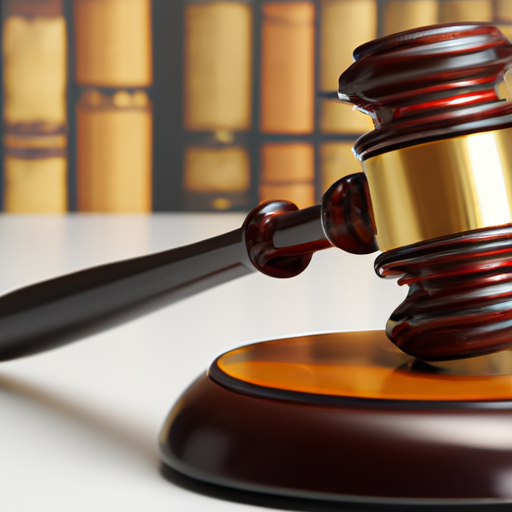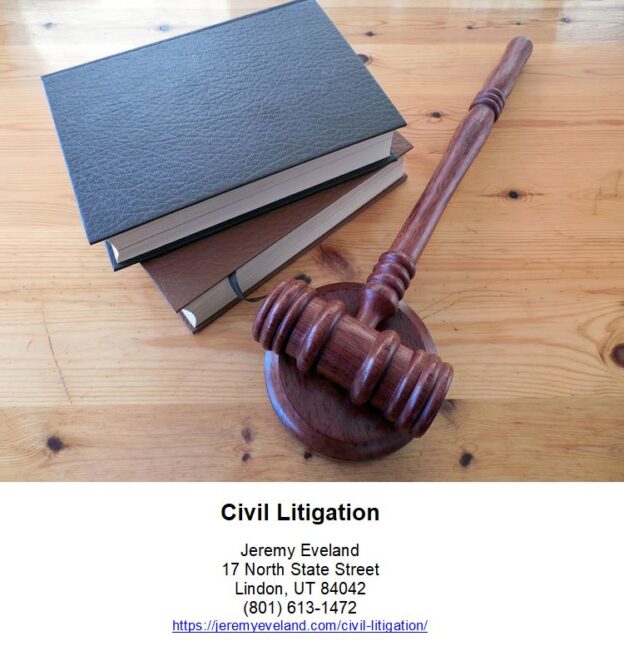Criminal court proceedings are complex legal processes that require careful understanding and guidance. As a business owner or head of a company, it is essential to be well-informed about this area of law to protect your interests and navigate potential legal challenges. In this article, we will explore the intricacies of criminal court proceedings, providing you with valuable insights and knowledge. From the different stages of a trial to the roles of key players such as prosecutors and defense attorneys, we will delve into the details, ensuring you have a comprehensive understanding of the subject matter. Whether you are facing criminal charges or seeking to prevent legal issues for your business, our goal is to provide you with the information and resources you need to make informed decisions. Contact our experienced criminal defense attorney for a consultation and safeguard your rights and reputation.

Introduction to Criminal Court Proceedings
Criminal court proceedings refer to the legal process that takes place when an individual is accused of committing a crime. It is the mechanism by which the justice system determines guilt or innocence and imposes penalties for unlawful behavior. Understanding criminal court proceedings is crucial, as it ensures that individuals accused of crimes are aware of their rights and can navigate the legal process effectively.
Definition of Criminal Court Proceedings
Criminal court proceedings encompass a series of legal actions that occur from the time of arrest to the final resolution of a criminal case. They involve multiple stages, including pre-trial, trial, and post-conviction phases. Each phase serves a specific purpose in determining the guilt or innocence of the accused and ensuring a fair and just outcome.
Importance of Understanding Criminal Court Proceedings
Understanding criminal court proceedings is essential for anyone involved in a criminal case, whether as the accused or a witness. Individuals facing criminal charges need to comprehend their rights, the potential consequences they face, and the strategies their defense attorney may employ to protect their interests. Likewise, witnesses must understand their role and obligations during court proceedings to provide accurate and reliable testimony. Overall, comprehending criminal court proceedings empowers individuals to actively participate in their defense or prosecution and helps ensure a fair and just legal process.
Overview of the Criminal Court System
The criminal court system is a complex network of courts, judges, attorneys, and support personnel that handles criminal cases. It is designed to safeguard the rights of the accused and uphold the principles of justice. The system varies between different jurisdictions, but generally consists of trial courts, appellate courts, and, in some cases, specialized courts such as juvenile courts or drug courts.
Pre-Trial Phase
Arrest and Booking
The pre-trial phase begins with the arrest and booking of the accused. Law enforcement officers detain individuals suspected of committing a crime and take them to a police station for the booking process. During this phase, personal information is collected, fingerprints and photographs are taken, and the suspect may be subject to questioning.
Initial Appearance
After arrest and booking, the accused is brought before a judge for an initial appearance. This is a brief hearing where the judge informs the defendant of the charges against them, advises them of their rights, and appoints an attorney if necessary. The judge also determines if the accused is eligible for bail or must remain in custody until their hearing.
Bail and Pretrial Release
If the judge determines that the accused is eligible for bail, they may be released from custody upon payment of a specified amount. Bail serves as a financial guarantee that the defendant will appear for future court proceedings. In some cases, the court may impose additional conditions for release, such as surrendering passports or attending counseling programs.
Preliminary Hearing
A preliminary hearing is conducted to determine if there is enough evidence to proceed with a trial. During this hearing, the prosecution presents evidence and witnesses to demonstrate probable cause that the accused committed the crime. The defense has the opportunity to challenge the evidence and present arguments against the charges.
Grand Jury Indictment
In some jurisdictions, the prosecution may present the case to a grand jury to obtain an indictment. A grand jury is a group of individuals who review the evidence and determine if there is enough evidence to formally charge the accused with a crime. If the grand jury issues an indictment, the case proceeds to trial.
Arraignment
The arraignment is the formal reading of the charges against the accused, and it is where they enter their plea of guilty or not guilty. The defense attorney and prosecution may also discuss the possibility of a plea agreement during this phase. If the accused pleads not guilty, the case moves forward to the trial phase.
Discovery and Motion Practice
Discovery Process
During the discovery process, both the defense and prosecution exchange information and evidence related to the case. This includes witness statements, police reports, expert opinions, and any other material that may be used at trial. Discovery allows both sides to assess the strength of their case and prepare their strategies accordingly.
Types of Evidence in Criminal Cases
In criminal cases, evidence can take various forms, such as physical evidence, testimonial evidence, documentary evidence, and demonstrative evidence. Physical evidence includes items like weapons, fingerprints, or DNA samples. Testimonial evidence consists of statements made by witnesses or the accused. Documentary evidence can be documents, photographs, or recordings. Demonstrative evidence is visual aids or models used to illustrate or clarify facts.
Defense Motions
During the pre-trial phase, the defense may file various motions to challenge the admissibility of evidence, request the suppression of certain statements, or seek dismissal of the case. These motions aim to protect the defendant’s rights and ensure a fair trial. Common defense motions include motions to suppress evidence, motions to dismiss, and motions for discovery.
Prosecution Motions
The prosecution may also file motions during the pre-trial phase to seek the court’s approval for certain actions or to address legal issues that may arise during the trial. Prosecution motions may include motions for continuance, motions to admit evidence, or motions to exclude evidence not favorable to the state’s case.

Plea Bargaining
Definition and Purpose of Plea Bargaining
Plea bargaining is a negotiation process between the defense and prosecution where the accused agrees to plead guilty in exchange for a lesser charge or a reduced sentence. The purpose of plea bargaining is to expedite the resolution of criminal cases, reduce the burden on the court system, and provide defendants with the opportunity to achieve a more favorable outcome than they might receive at trial.
Negotiating a Plea Bargain
The defense attorney and prosecutor engage in plea negotiations to determine if a mutually acceptable agreement can be reached. During these negotiations, they discuss the potential consequences of going to trial, the strength of the evidence, and any mitigating factors that may impact the case. If an agreement is reached, it must be presented to the judge for approval.
Advantages and Disadvantages of Plea Bargaining
Plea bargaining offers several advantages for both the accused and the prosecution. For the accused, it may result in a reduced sentence, a lesser charge, or the avoidance of a trial. For the prosecution, it allows them to secure a conviction without the uncertainties of trial and the associated costs. However, plea bargaining comes with its disadvantages, such as the potential for perceived leniency in the criminal justice system and the possibility of innocent individuals accepting plea deals to avoid the risk of a lengthy prison sentence.
Plea Bargain Approval
Once a plea agreement is reached, it must be presented to the judge for approval. The judge will review the terms of the plea bargain to ensure it is fair and in the best interest of justice. If the judge approves the plea, the case proceeds to the sentencing phase. If the judge rejects the plea, the defendant may have the opportunity to withdraw their guilty plea and proceed to trial.
Trial Phase
Jury Selection
During the trial phase, a jury is selected to hear the evidence, evaluate witness testimony, and determine the guilt or innocence of the accused. The process starts with the selection of potential jurors through a questioning process known as voir dire. Both the defense and prosecution have the opportunity to question potential jurors and request the removal of individuals who may not be impartial.
Opening Statements
Once the jury is selected, the trial begins with the opening statements. The prosecution presents an opening statement first, outlining their case and providing an overview of the evidence they will present. The defense follows with their opening statement, highlighting the flaws in the prosecution’s case and introducing their own theory of defense.
Presentation of Evidence
During the presentation of evidence, both the prosecution and defense have the opportunity to present their case and introduce evidence to support their arguments. This includes calling witnesses to testify, introducing exhibits and documents, and presenting expert opinions. The order of presentation is typically as follows: the prosecution presents their case-in-chief, followed by the defense presenting their case-in-chief. Each side has the opportunity to cross-examine the other party’s witnesses.
Cross-Examination
Cross-examination is a critical part of the trial phase, where the opposing party’s attorney questions the witnesses presented by the other side. The purpose of cross-examination is to challenge the credibility of the witness, elicit favorable evidence for the cross-examiner’s case, or cast doubt on the witness’s testimony. Effective cross-examination requires careful planning and strategic questioning.
Closing Arguments
After the presentation of evidence is complete, both the prosecution and defense present their closing arguments. This is the final opportunity for each side to summarize their case, highlight key evidence, and persuade the jury to support their position. Closing arguments aim to provide a clear and compelling narrative that supports the attorney’s theory of the case.
Jury Instructions
Before the jury begins deliberations, the judge provides them with instructions on the law applicable to the case. These instructions guide the jury in their evaluation of the evidence and the interpretation of the law. Jurors are instructed to base their decision solely on the evidence presented during the trial and to apply the law as explained by the judge.
Deliberation and Verdict
Once the jury has received the instructions, they retire to the jury room to deliberate and reach a verdict. Deliberations involve careful examination of the evidence, discussions among jury members, and the application of the law to the facts of the case. When the jury reaches a unanimous decision, they inform the judge of their verdict, and the judge publicly announces the outcome.

Sentencing
Sentencing Factors
During the sentencing phase, the judge considers various factors to determine an appropriate sentence for the convicted individual. Factors may include the severity of the offense, the defendant’s criminal history, the harm caused to the victim or society, the presence of mitigating or aggravating circumstances, and the need for rehabilitation or deterrence.
Types of Sentences
Sentences in criminal cases can vary widely based on the nature of the crime and applicable laws. Common types of sentences include fines, probation, community service, restitution, incarceration, or a combination of these. The judge has the discretion to impose a sentence within the bounds of the law and considers the unique circumstances of each case.
Sentencing Guidelines
In some jurisdictions, sentencing guidelines provide a framework to guide judges in determining appropriate sentences based on specific offenses and offender characteristics. These guidelines take into account factors such as the severity of the offense, the offender’s criminal history, and any mitigating or aggravating circumstances. Judges use the guidelines as a reference but also have the discretion to deviate from them if warranted by the circumstances of the case.
Mandatory Minimum Sentences
Mandatory minimum sentences are predetermined minimum penalties imposed by law for specific offenses. These sentences require judges to impose a minimum term of incarceration or other mandatory penalties regardless of the individual circumstances of the case. The purpose of mandatory minimum sentences is to ensure consistency in sentencing and to provide a deterrent effect.
Appealing a Sentence
If a convicted individual believes that an error was made during the sentencing phase or that their sentence is unduly harsh, they may have the option to appeal the sentence. This involves filing an appeal with a higher court, which reviews the trial court’s judgment and sentence for errors of law or abuse of discretion. The appellate court has the power to modify, reverse, or uphold the original sentence.
Appeals and Post-Conviction Remedies
Grounds for Appeal
There are various grounds on which an individual can appeal their conviction or sentence. Common grounds for appeal include errors in the admission or exclusion of evidence, errors in jury instructions, ineffective assistance of counsel, prosecutorial misconduct, or errors in the judge’s legal rulings. The appellate process allows for a thorough review of the trial proceedings to ensure a fair and just outcome.
Appellate Court Process
The appellate court process involves a review of the trial record, examination of written briefs submitted by the parties, and in some cases, oral arguments. The appellate court assesses whether legal errors occurred during the trial that may have affected the outcome or the defendant’s rights. The court may issue a written decision, upholding the conviction and sentence, modifying them, or ordering a new trial.
Post-Conviction Remedies
In addition to the appellate process, individuals convicted of crimes may have access to post-conviction remedies. These remedies allow for a further review of the case to raise issues that were not previously addressed or that have arisen since the conviction. Post-conviction remedies may include motions for new trial, petitions for writ of habeas corpus, or applications for sentence modifications.
Habeas Corpus Petitions
A habeas corpus petition is a legal action that challenges the lawfulness of an individual’s detention or imprisonment. It is typically used to raise issues that were not resolved during the trial or appeals process. Habeas corpus petitions involve presenting evidence of constitutional violations, ineffective assistance of counsel, newly discovered evidence, or other circumstances that warrant a re-examination of the conviction or sentence.
Juvenile Court Proceedings
Comparison to Adult Criminal Court
Juvenile court proceedings differ from adult criminal court proceedings in significant ways, primarily because they focus on the rehabilitation and treatment of youthful offenders rather than punishment. Juvenile courts seek to address the underlying issues that contributed to the juvenile’s behavior and provide support and guidance to help them reintegrate into society as law-abiding adults.
Unique Aspects of Juvenile Court Proceedings
Juvenile court proceedings typically emphasize privacy and protection for minors, as their identities are often shielded from public exposure. Juveniles may have the right to have their cases heard by a judge rather than a jury, and the court may have more discretion in fashioning individualized dispositions rather than imposing standardized sentences. In some jurisdictions, juvenile records may be sealed or expunged to provide a fresh start for the individual after successful completion of the juvenile court process.
Juvenile Sentencing
In juvenile court, the focus is on a rehabilitative approach rather than punitive measures. Sentences in juvenile court can include probation, community service, counseling, educational programs, or placement in a residential facility. The objective is to address the factors contributing to the juvenile’s delinquent behavior and provide them with the necessary tools and resources to make positive changes in their lives.
Juvenile Records and Expungement
Juvenile records are typically treated differently from adult criminal records. In many jurisdictions, there is a presumption that the juvenile’s records will remain confidential and inaccessible to the public. Additionally, some jurisdictions provide avenues for juvenile records to be expunged or sealed once the individual reaches a certain age or demonstrates rehabilitation. Expungement allows for a fresh start and reduces the potential negative impact of a juvenile record on the individual’s future prospects.
Defending Against Criminal Charges
Importance of Legal Representation
When facing criminal charges, it is crucial to seek legal representation from an experienced criminal defense attorney. A skilled attorney can protect your rights, guide you through the complexities of the legal process, and develop a defense strategy tailored to your circumstances. With their expertise and knowledge of the law, they can advocate on your behalf and work towards achieving the best possible outcome for your case.
Role of the Defense Attorney
The defense attorney plays a vital role in ensuring a fair and just legal process. They investigate the facts of the case, gather evidence, interview witnesses, and challenge the prosecution’s evidence. The defense attorney also advises the accused on their rights, negotiates plea bargains, and represents them during trial. Their expertise and advocacy are essential in building a strong defense and protecting the accused’s interests.
Legal Defenses
A defense attorney employs various legal defenses to challenge the prosecution’s case and establish a reasonable doubt of the accused’s guilt. Common legal defenses include mistaken identity, lack of intent, alibi, self-defense, duress, entrapment, or illegal search and seizure. Each defense strategy is tailored to the specific circumstances of the case and aims to undermine the prosecution’s evidence or cast doubt on their case.
Challenging the Prosecution’s Case
The defense attorney scrutinizes the prosecution’s evidence, witnesses, and legal theories to identify weaknesses and inconsistencies. They may challenge the admissibility of evidence, question the credibility of witnesses, introduce alternative explanations or interpretations of the evidence, or challenge the legality of the search and seizure. By effectively challenging the prosecution’s case, the defense attorney aims to create reasonable doubt in the minds of the judge or jury and secure an acquittal or a favorable outcome for their client.
Frequently Asked Questions
What is the difference between a criminal and civil court proceeding?
Criminal court proceedings deal with cases involving violations of criminal laws, where the state or government prosecutes individuals accused of committing crimes. Civil court proceedings, on the other hand, involve disputes between individuals or organizations where one party seeks compensation or a specific remedy from the other. Criminal cases carry potential penalties such as fines, probation, or incarceration, while civil cases often result in monetary damages or equitable relief.
Can I represent myself in criminal court?
While individuals have the right to represent themselves in criminal court, it is generally not advisable. The legal system is complex, and criminal cases require a thorough understanding of the law, evidence, and courtroom procedures. Hiring an experienced criminal defense attorney significantly increases the likelihood of a favorable outcome, as they possess the necessary knowledge and skills to navigate the legal process effectively.
What happens if I plead guilty?
If you plead guilty to a criminal charge, it generally means you accept responsibility for the offense. The court then proceeds with the sentencing phase, where the judge determines the appropriate penalty. Pleading guilty can result in a conviction on your record, potential fines, probation, and in some cases, incarceration. It is crucial to consult with a defense attorney before entering a guilty plea to fully understand the potential consequences and explore all available options.
What are the possible outcomes of a criminal trial?
The possible outcomes of a criminal trial depend on various factors, including the strength of the evidence, the effectiveness of the defense strategy, and the decisions of the judge or jury. The primary outcomes include acquittal, where the accused is found not guilty and no further action is taken; conviction, resulting in penalties such as fines or imprisonment; or a hung jury, where the jury is unable to reach a unanimous decision, leading to a mistrial. Additionally, plea agreements reached during trial may result in a reduced charge or sentence.
Can I appeal a criminal conviction?
Yes, individuals have the right to appeal a criminal conviction if they believe legal errors occurred during the trial that may have impacted the outcome. The appeals process involves presenting arguments to a higher court, demonstrating that errors of law or procedural irregularities occurred and affected the fairness of the trial. The appellate court has the power to modify the conviction, order a new trial, or reverse the conviction altogether. It is essential to consult with an appellate attorney to assess the viability of an appeal and navigate the complex appeals process effectively.
This article provides a general overview of criminal court proceedings and is not a substitution for legal advice. For specific guidance on your case, consult with an experienced criminal defense attorney.
Frequently Asked Questions
What is the difference between a criminal and civil court proceeding?
A criminal court proceeding deals with cases involving violations of criminal laws, where the state or government prosecutes individuals accused of committing crimes. A civil court proceeding, on the other hand, involves disputes between individuals or organizations where one party seeks compensation or a specific remedy from the other. Criminal cases carry potential penalties such as fines, probation, or incarceration, while civil cases often result in monetary damages or equitable relief.
Can I represent myself in criminal court?
While individuals have the right to represent themselves in criminal court, it is generally not advisable. The legal system is complex, and criminal cases require a thorough understanding of the law, evidence, and courtroom procedures. Hiring an experienced criminal defense attorney significantly increases the likelihood of a favorable outcome, as they possess the necessary knowledge and skills to navigate the legal process effectively.
What happens if I plead guilty?
If you choose to plead guilty to a criminal charge, it means you accept responsibility for the offense. The court then proceeds with the sentencing phase, where the judge determines the appropriate penalty. Pleading guilty can result in a conviction on your record, potential fines, probation, and in some cases, incarceration. It is crucial to consult with a defense attorney before entering a guilty plea to fully understand the potential consequences and explore all available options.
What are the possible outcomes of a criminal trial?
The possible outcomes of a criminal trial depend on various factors, including the strength of the evidence, the effectiveness of the defense strategy, and the decisions of the judge or jury. The primary outcomes include acquittal, where the accused is found not guilty and no further action is taken; conviction, resulting in penalties such as fines or imprisonment; or a hung jury, where the jury is unable to reach a unanimous decision, leading to a mistrial. Additionally, plea agreements reached during trial may result in a reduced charge or sentence.
Can I appeal a criminal conviction?
Yes, individuals have the right to appeal a criminal conviction if they believe legal errors occurred during the trial that may have impacted the outcome. The appeals process involves presenting arguments to a higher court, demonstrating that errors of law or procedural irregularities occurred and affected the fairness of the trial. The appellate court has the power to modify the conviction, order a new trial, or reverse the conviction altogether. It is essential to consult with an appellate attorney to assess the viability of an appeal and navigate the complex appeals process effectively.
This article provides a general overview of criminal court proceedings and is not a substitution for legal advice. For specific guidance on your case, consult with an experienced criminal defense attorney.













